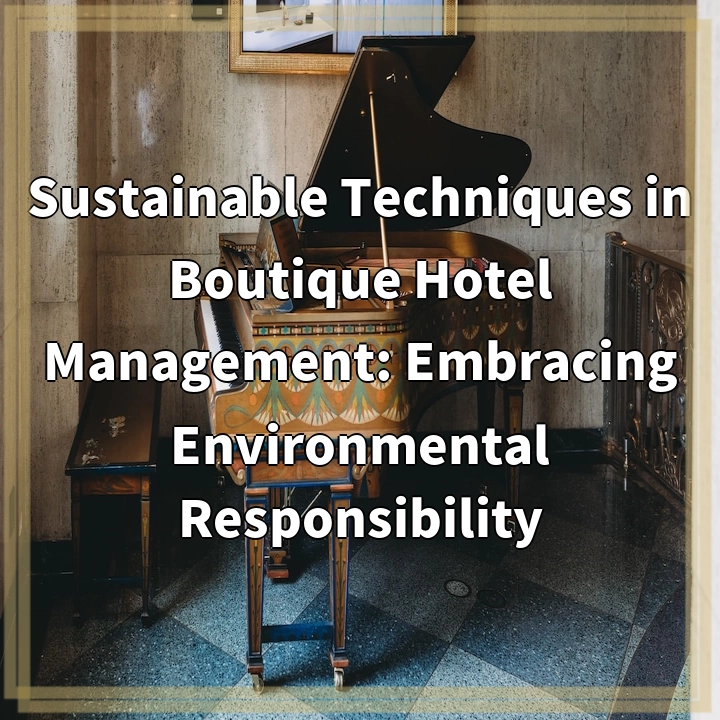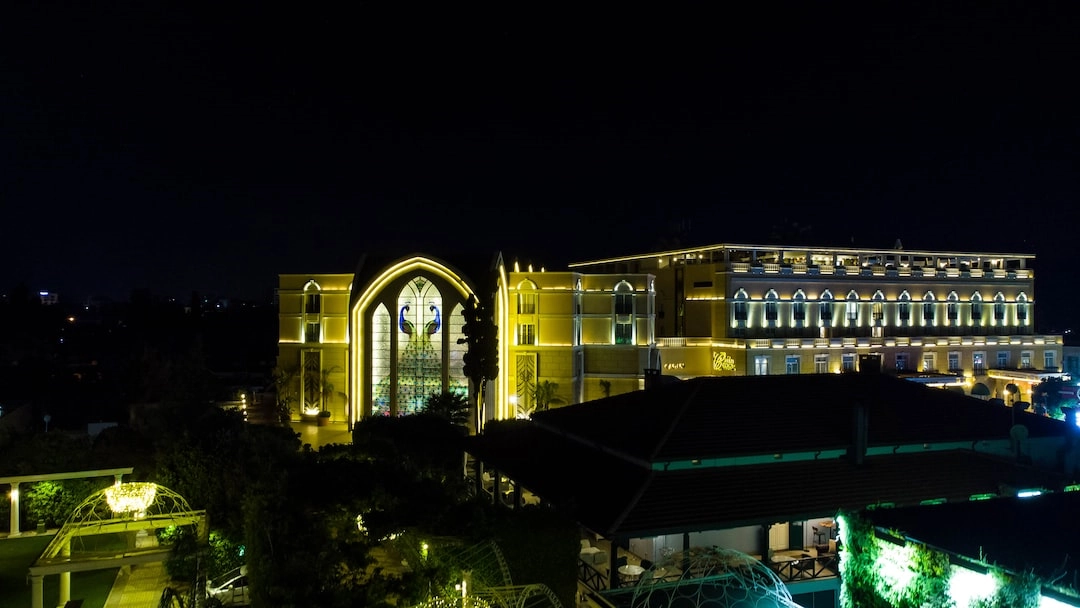
What it is:
Sustainable techniques in boutique hotel management involve implementing strategies and practices that minimize negative environmental impacts and promote the efficient use of resources. This approach aims to balance the unique charm and luxury associated with boutique hotels while striving for environmental responsibility.
Real-world problems:
Boutique hotels face several challenges when it comes to adopting sustainable techniques. These challenges include:
Limited Resources:
Unlike bigger hotel chains, boutique hotels often have limited financial and human resources. This can make it difficult to invest in sustainable technologies or hire specialized staff to manage sustainability initiatives.
Heritage and Preservation:
Many boutique hotels are housed in historic buildings or structures with cultural and architectural significance. Balancing the preservation of these heritage features while implementing modern sustainability measures can be a delicate task.
High Guest Expectations:
Boutique hotel guests often have high expectations when it comes to luxury and personalized experiences. Meeting these expectations while also implementing sustainability practices can sometimes create a challenge.
Supply Chain Management:
Ensuring sustainable practices throughout the hotel’s supply chain can be complex. From sourcing eco-friendly materials for construction and furnishings to working with sustainable food and beverage suppliers, boutique hotels need to actively manage their supply chains to maintain environmental responsibility.
Educating and Engaging Guests:
Creating awareness among guests about sustainability initiatives and encouraging their participation can be a challenge. Boutique hotels need to find creative ways to educate and engage guests, such as providing information about local environmental initiatives or offering incentives for sustainable behaviors.
Addressing these real-world problems requires a multifaceted approach and a commitment to continuous improvement. Through innovation, collaboration, and a strong focus on environmental responsibility, boutique hotels can lead the way towards a more sustainable and responsible hospitality industry.

Solutions for Sustainable Boutique Hotel Management:
Addressing the challenges associated with sustainable techniques in boutique hotel management can be achieved through the following solutions:
Strategic Planning and Investment:
Boutique hotels should develop long-term sustainability plans that align with their vision and financial capabilities. This includes budgeting for sustainable investments and prioritizing initiatives that will have the most significant impact.
Preserving Heritage with Sustainability in Mind:
When renovating or operating in historic buildings, boutique hotels can implement sustainable practices that respect the property’s heritage. This can involve using energy-efficient technologies that blend seamlessly with the building’s design or promoting local craftsmanship and materials.
Innovative Luxury and Sustainability:
Boutique hotels can offer unique luxury experiences that are also environmentally responsible. This can include providing organic and locally sourced food, using eco-friendly amenities and toiletries, and incorporating sustainable design elements that showcase the hotel’s commitment to the environment.
Collaborating with Suppliers:
Boutique hotels should strive to partner with suppliers who share their commitment to sustainability. This involves sourcing eco-friendly materials, supporting fair trade practices, and working closely with local producers and artisans to promote sustainable economies.
Guest Education and Engagement:
Creating awareness among guests about the hotel’s sustainability efforts is crucial. Boutique hotels can implement initiatives such as in-room informational materials, hosting educational workshops or activities, and offering incentives for sustainable behaviors, all aimed at inspiring guests to participate in environmentally responsible practices.
Monitoring and Evaluation:
Boutique hotels must continually monitor and evaluate their sustainability initiatives to measure their effectiveness and identify areas for improvement. This can involve setting measurable targets, measuring resource consumption, and seeking feedback from guests and staff.
By implementing these solutions, boutique hotels can successfully embrace environmental responsibility while maintaining their unique charm and luxury. These efforts not only benefit the environment but also attract eco-conscious guests, contribute to the local community, and position the hotel as a leader in sustainable hospitality.















